Take a trip back in time to the 1950s and 1960s with a look at some of America’s most iconic restaurants and diners.From the bold colors and streamlined shapes of their architecture to the neon signs that lit up the night sky, these establishments were a true reflection of the post-war era.In this article, we’ll showcase a collection of exterior photos that capture the spirit and style of American restaurants in the 1950s and 1960s.
The 1950s and 1960s were a time of great change in America, and nowhere was this more evident than in the restaurants and diners of the era.
These establishments were an important part of American culture, and their history is a fascinating look at the social and architectural trends of the time.

Arizona. Huck Finns Restaurant, Phoenix
One of the most striking features of 1950s and 1960s restaurants and diners was their architecture. These buildings were often designed with distinctive features that set them apart from other structures of the time.
For example, many diners were built with rounded corners and streamlined shapes that were reminiscent of the Art Deco style that was popular in the 1920s and 1930s. These shapes gave the buildings a futuristic look that was very much in keeping with the spirit of the times.
The colors and design of these restaurants were also noteworthy. Many were decorated in bold, bright colors like red, blue, and yellow, and they often featured patterns like stripes and polka dots.
This design style was known as “Googie,” and it was a popular choice for diners, drive-ins, and other fast-food establishments.
The Googie style was all about creating a sense of fun and excitement, and it was a perfect fit for the fast-paced, post-war American culture of the time.
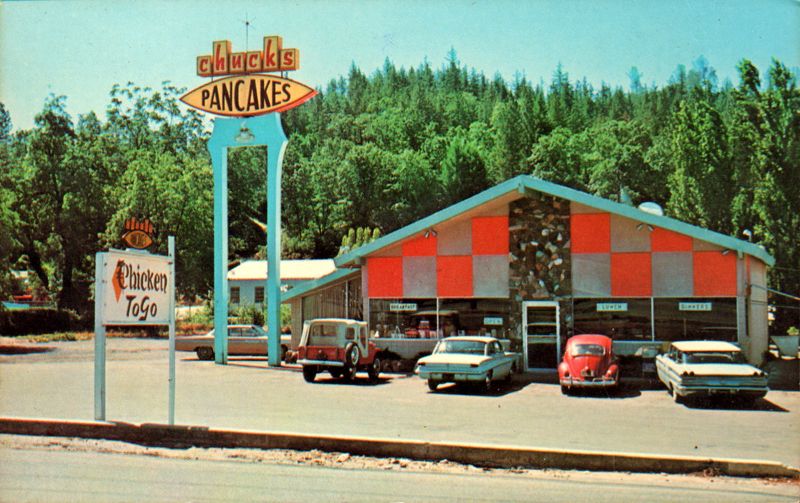
California. Chucks Pancake House, Placerville
In addition to their unique architecture and design, 1950s and 1960s restaurants and diners also had distinctive exterior features.
Many were built with large neon signs that lit up the night sky, announcing their presence to passing motorists. Others had large picture windows that allowed customers to look out at the world as they enjoyed their meals.
These exterior features were an important part of the restaurant experience, and they helped to create a sense of excitement and anticipation that drew customers in.
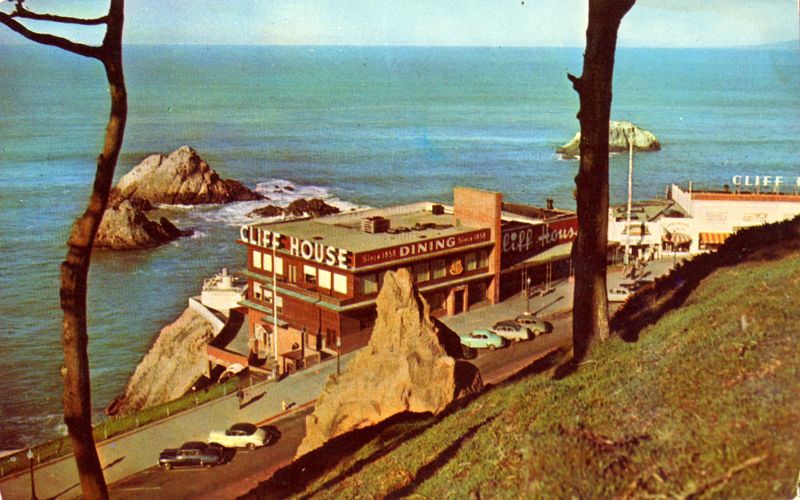
California. Cliff House and Seal Rocks, San Francisco
Of course, the patrons of these restaurants were just as important as the buildings themselves. In the 1950s and 1960s, diners and other restaurants were gathering places for people of all ages and backgrounds.
Teenagers would often flock to these establishments after school to hang out with friends and listen to music on the jukebox. Families would come for dinner and enjoy a meal together in a fun, casual atmosphere.
And, of course, there were always the regulars who would come in day after day to chat with the staff and catch up on the latest gossip.
In many ways, the history of American restaurants and diners in the 1950s and 1960s is a reflection of the larger cultural trends of the time.
These establishments were a celebration of the fast-paced, optimistic spirit of post-war America, and they remain an important part of our cultural heritage to this day.
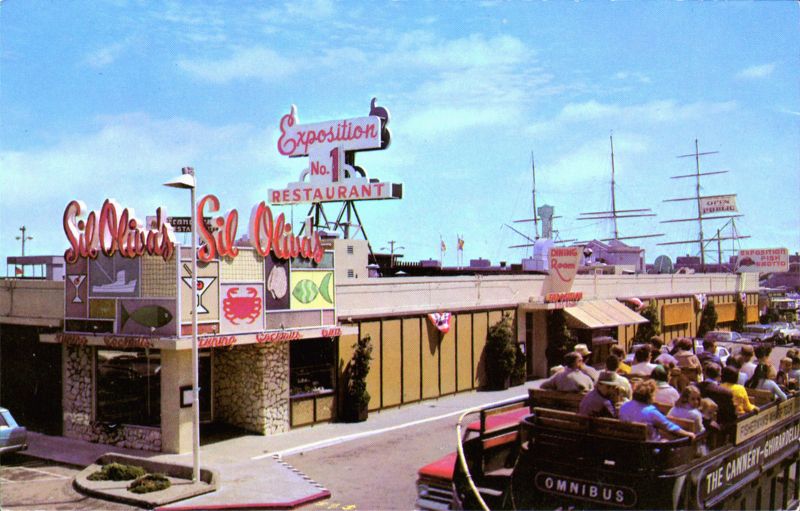
California. Exposition No. 1 Restaurant, Fishermans Wharf, San Francisco
Diners and small-style restaurants attracted a wide spectrum of the local population. From the mid-twentieth century onwards, they have been seen as quintessentially American, reflecting the perceived cultural diversity and egalitarian nature of the country at large.
Throughout much of the 20th century, diners, mostly in the Northeast, were often owned and operated by Greek-American immigrant families.
For example, the presence of Greek casual food, like gyros and souvlaki, on several northeastern diners’ menus, testifies to this cultural link.
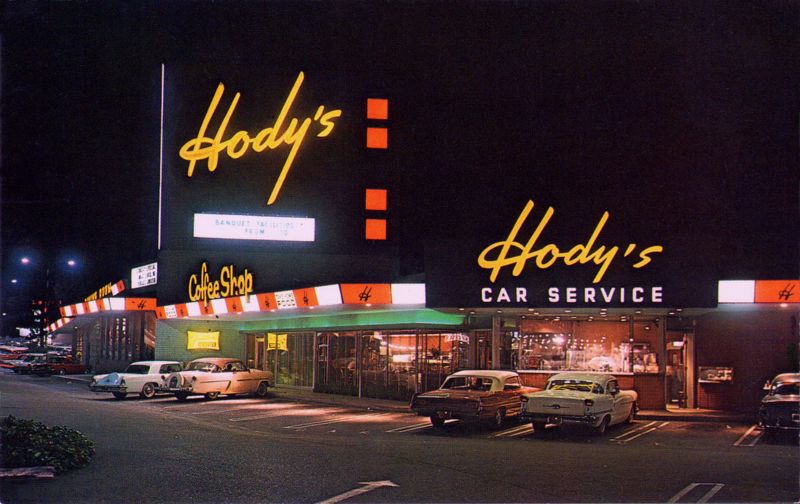
California. Hody’s Restaurant Coffee Shop, North Hollywood
Diners frequently stay open 24 hours a day, especially in cities, and were once the most widespread 24-hour public establishments in the U.S., making them an essential part of urban culture, alongside bars and nightclubs.
These two segments of nighttime urban culture often find themselves intertwined, as many diners get a good deal of late-night business from persons departing drinking establishments.
Many diners were also historically placed near factories which operated 24 hours a day, with night shift workers providing a key part of the customer base. For this reason, diners sometimes served as symbols of loneliness and isolation.
Edward Hopper’s iconic 1942 painting Nighthawks depicts a diner and its occupants, late at night. The diner in the painting is based on a real location in Greenwich Village, but was chosen in part because diners were anonymous slices of Americana, meaning that the scene could have been taken from any city in the country-and also because a diner was a place to which isolated individuals, awake long after bedtime, would naturally be drawn.
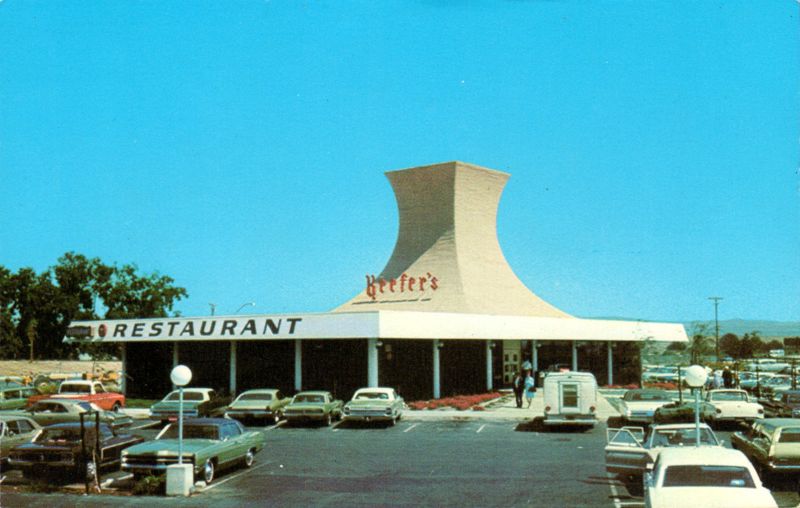
California. Keefer’s Highway Restaurant, King City
But as a rule, diners were always symbols of American optimism. Norman Rockwell made his 1958 painting, The Runaway, generically American by placing his subjects, a young boy and a protective highway patrolman, at the counter of an anonymous diner.
In television and cinema (e.g. The Blob, Happy Days, Grease and Diner), diners and soda fountains have come to symbolize the period of prosperity and optimism in America in the 1950s.
They are shown as the place where teenagers meet after school and as an essential part of a date. The television show Alice used a diner as the setting for the program, and one is often a regular feature in sitcoms such as Seinfeld. The diner’s cultural influence continues today.
Many non-prefab restaurants (including franchises like Denny’s) have copied the look of 1950s diners for nostalgic appeal, while Waffle House uses an interior layout derived from the diner.
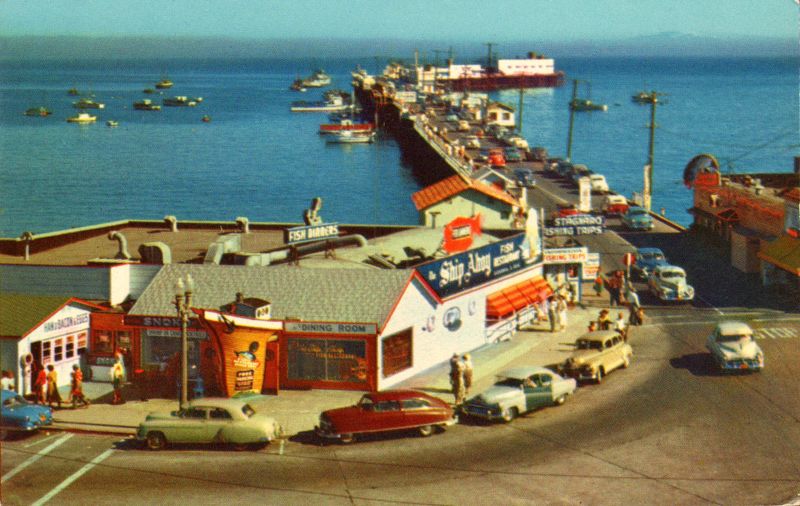
California. Ship Ahoy Sea Food Restaurant, Santa Cruz
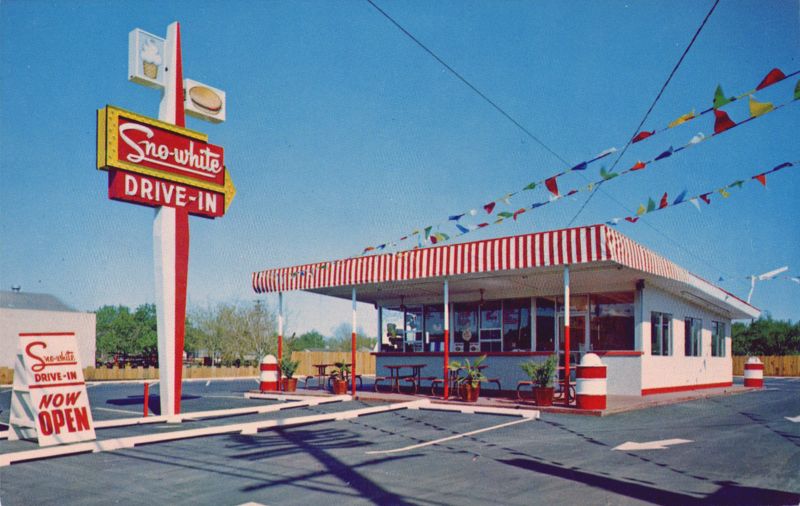
California. Sno-White Drive-In, Modesto
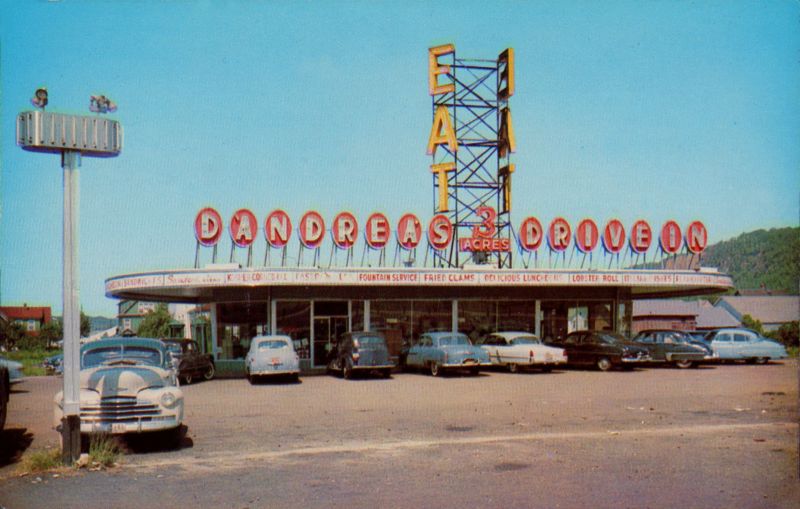
Connecticut. D’andrea’s 3 Acres Drive-In, Woodbridge
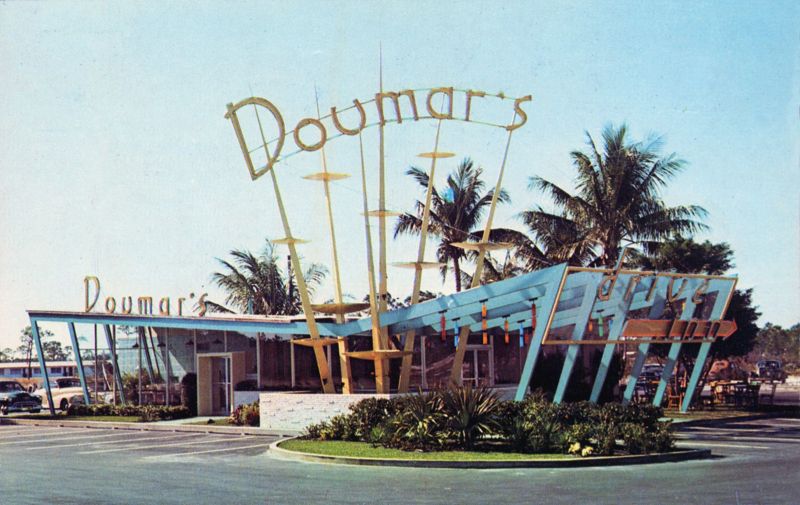
Florida. Doumar’s Drive-In Restaurant, Fort Lauderdale

Florida. Parham’s Restaurant, Miami Beach
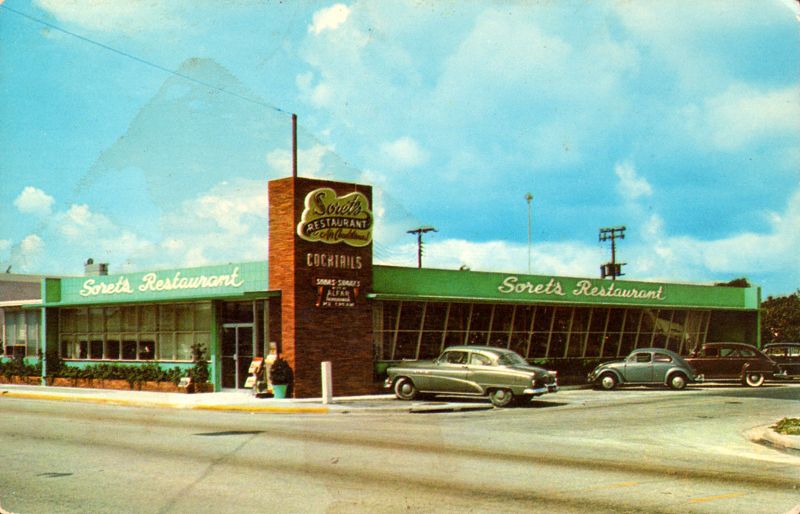
Florida. Soret’s Restaurant, Riviera Beach

Florida. The Brahma Restaurant, Ocala

Georgia. C & J Restaurant, Claxton
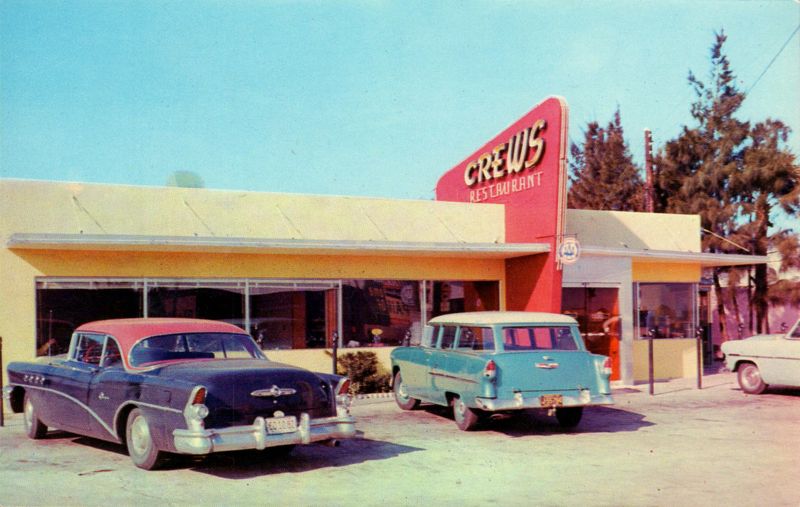
Georgia. Crews Restaurant, Brunswick
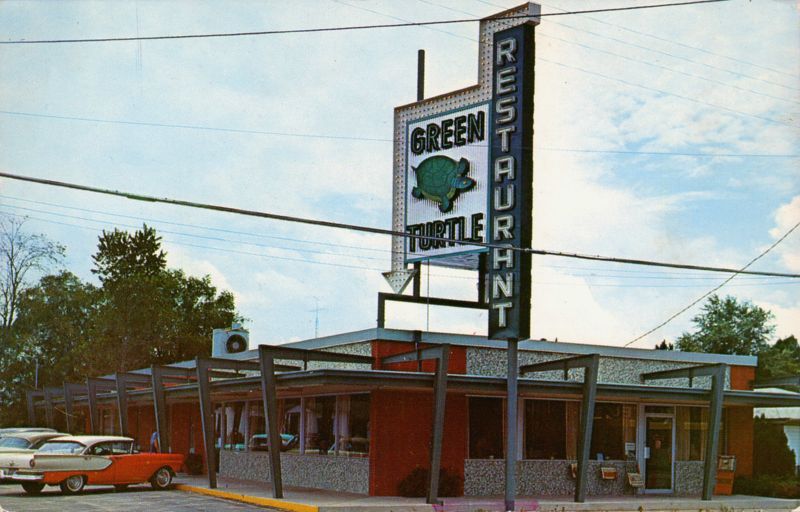
Georgia. Green Turtle Restaurant, Valdosta
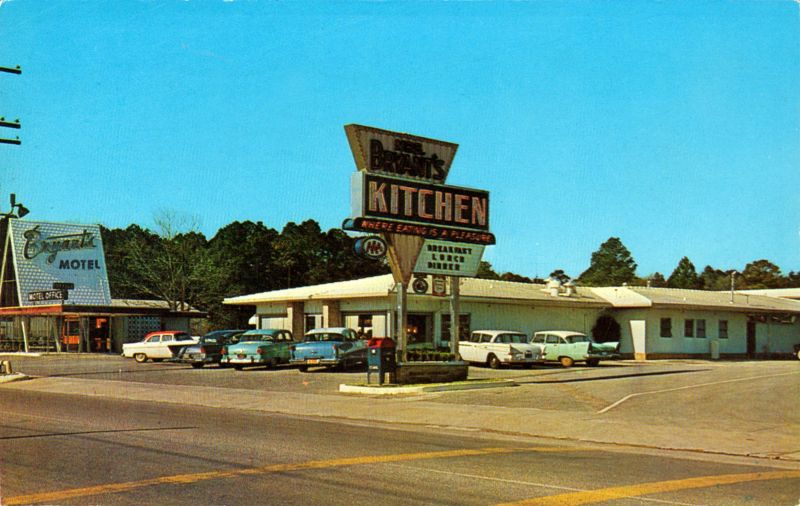
Georgia. Mrs. Bryant’s Kitchen, Statesboro
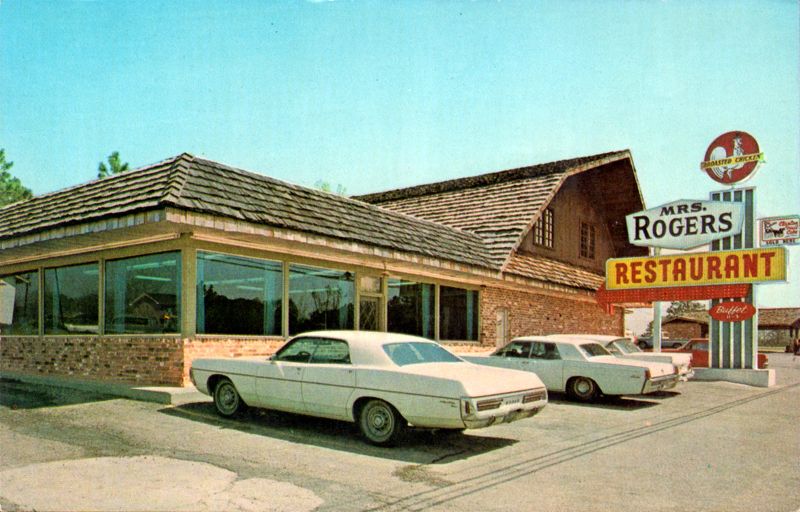
Georgia. Mrs. Rogers Restaurant, Claxton
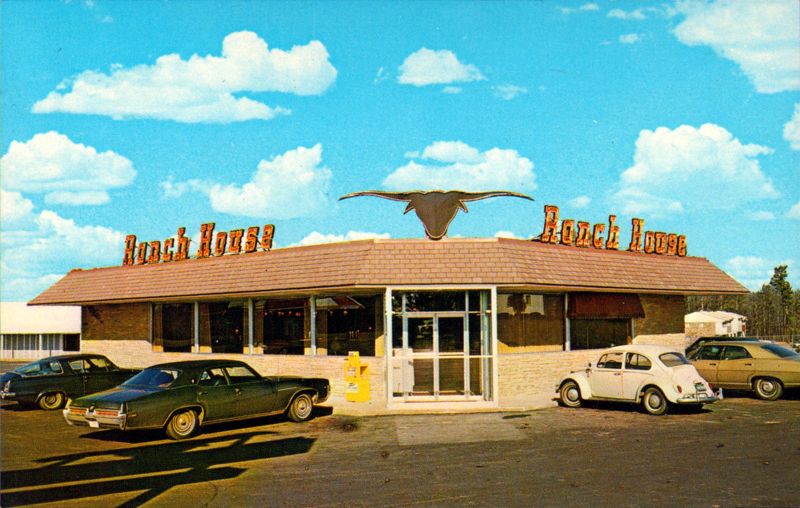
Georgia. Ranch House Restaurants, Atlanta
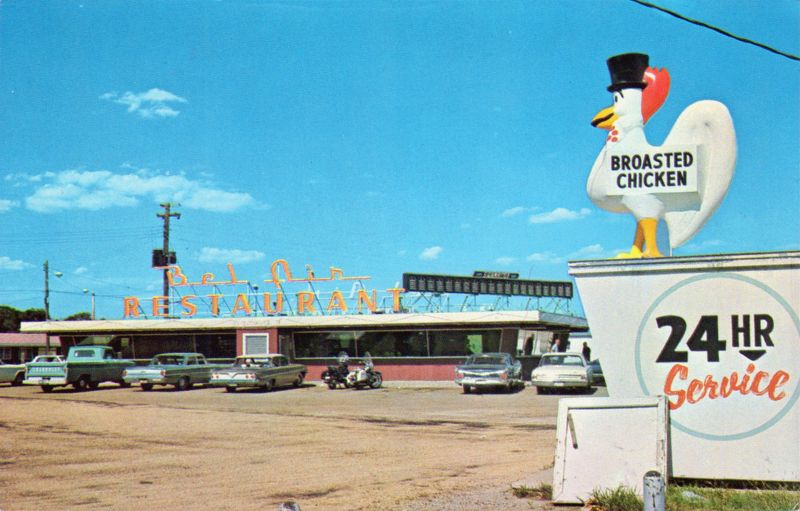
Illinois. Bel Air Restaurant, Greenville
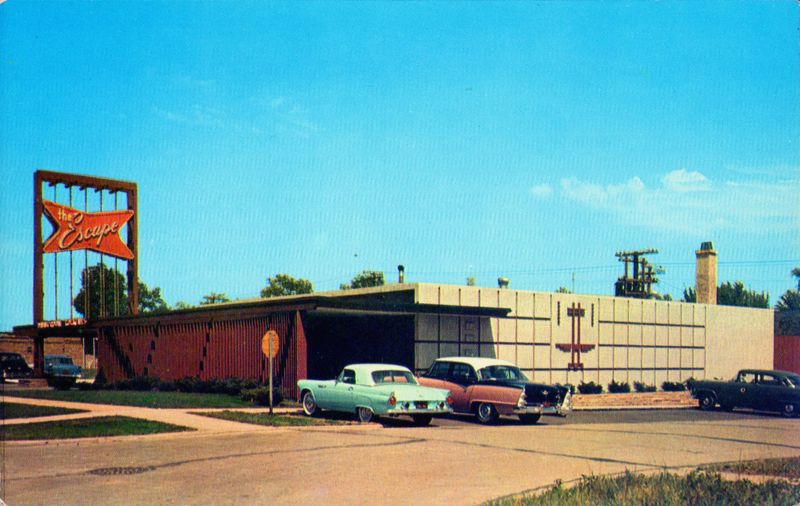
Illinois. The Escape Restaurant, Berwyn
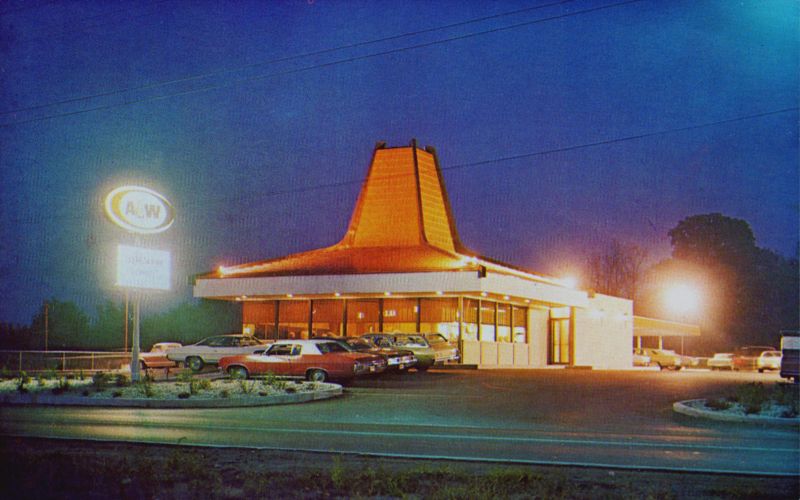
Indiana. A&w Family Restaurant, North Vernon
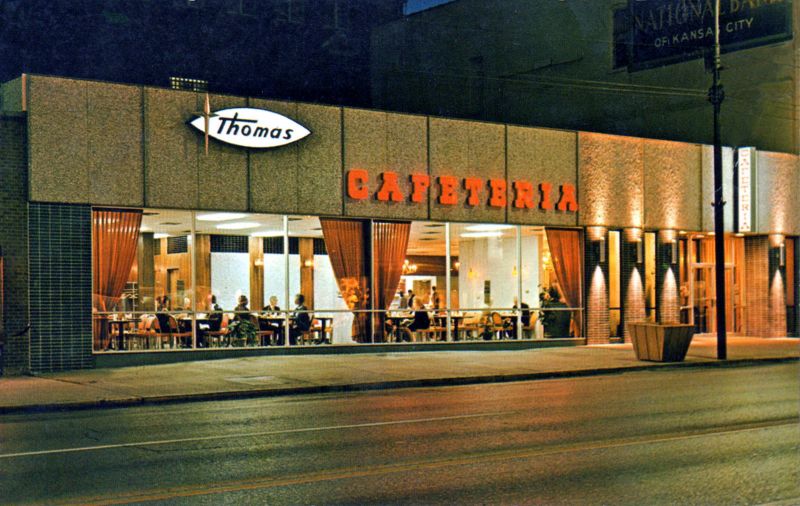
Kansas. Thomas Cafeteria, Kansas City

Kentucky. Bun Boy Restaurant, East Main Street, Warsaw
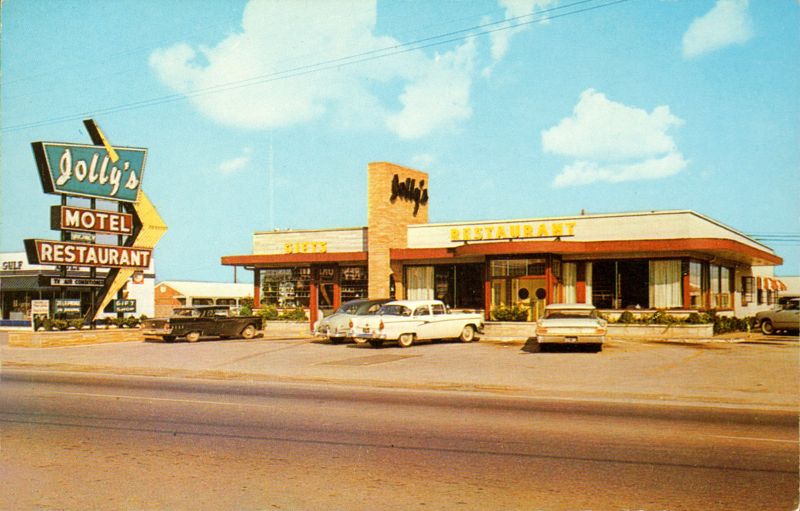
Kentucky. Jolly’s Restaurant & Motel, Cave City
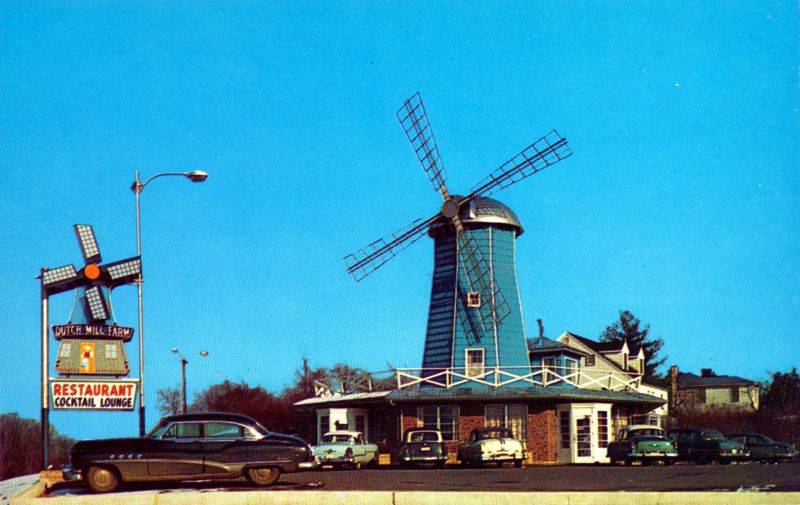
Maryland. Dutch Mill Farm Restaurant, Annapolis
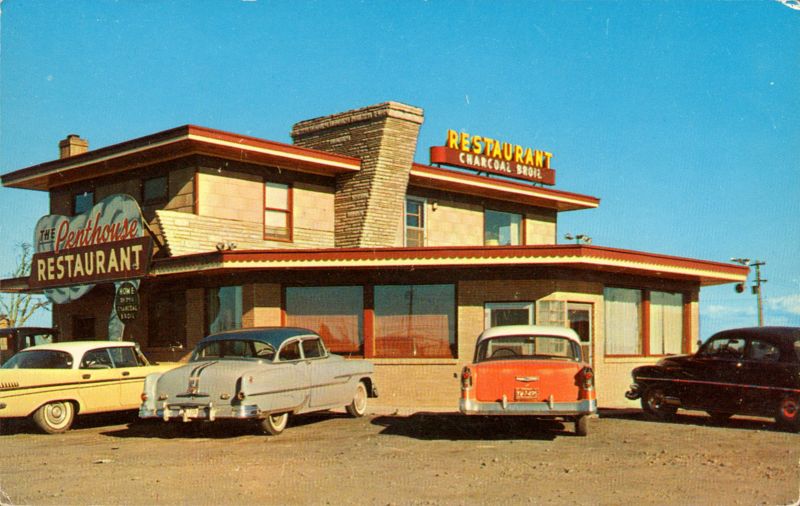
Michigan. Penthouse Restaurant, Marie
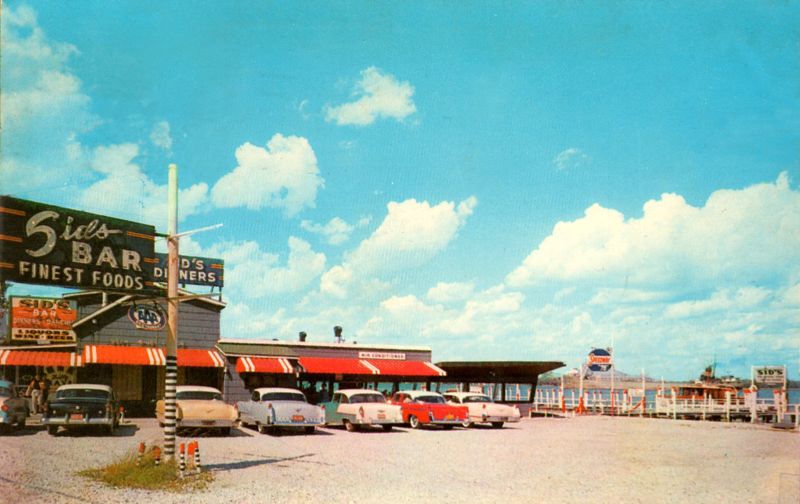
Michigan. Sids on the River, Algonac

Michigan. Totem Pole Restaurant, Ironwood

Minnesota. Cassidys Gold Pine Restaurant & Motor Inn, Hinckley

Minnesota. Country Kitchen Restaurant, St Cloud
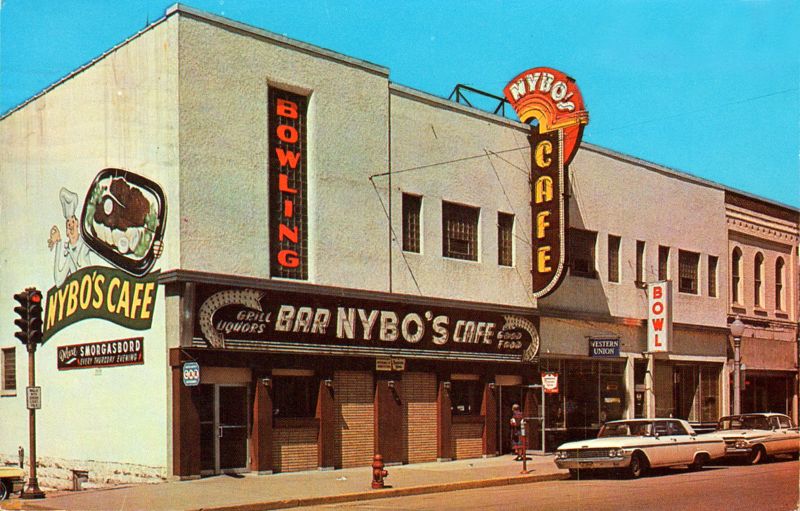
Minnesota. Nybo’s Cafe, Hiawatha Valley
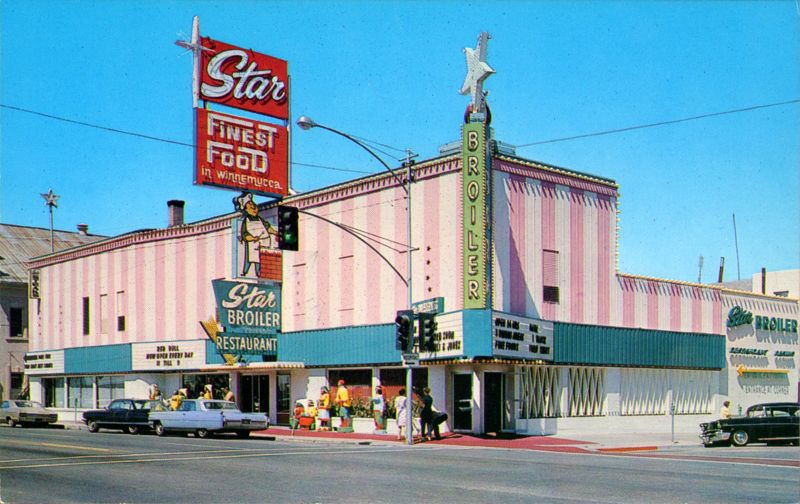
Nevada. Joe Mackie’s New Star Broiler & Casino, Winnemucca
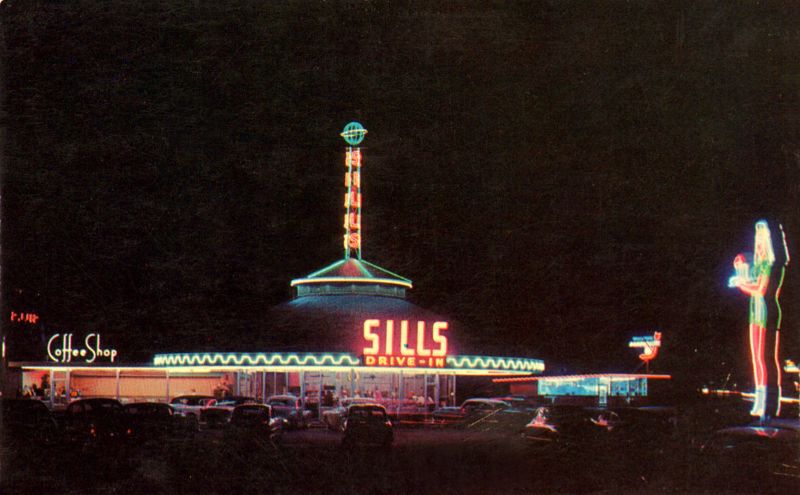
Nevada. Sills Drive-In Restaurant, Las Vegas
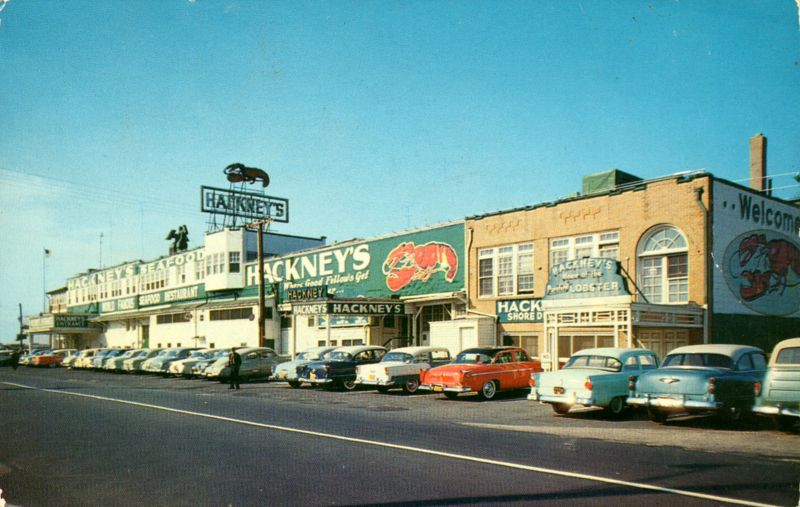
New Jersey. Hackney’s Seafood Restaurant, Atlantic City
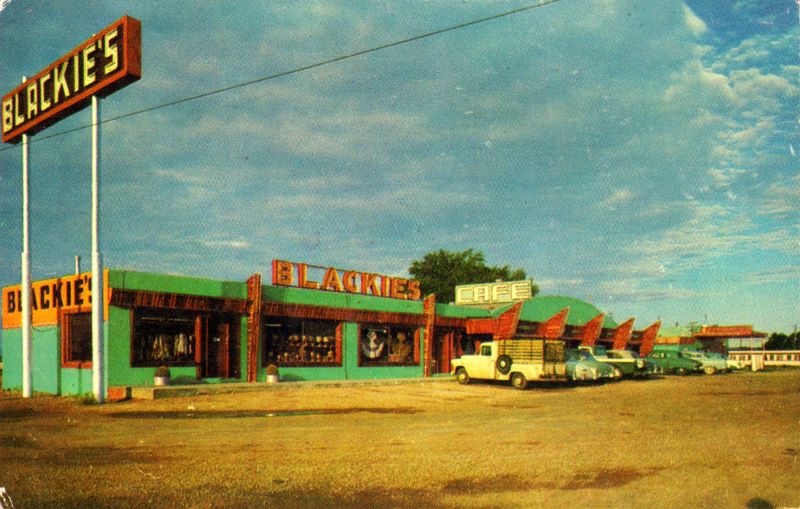
New Mexico. Blackie’s Place, Moriarty
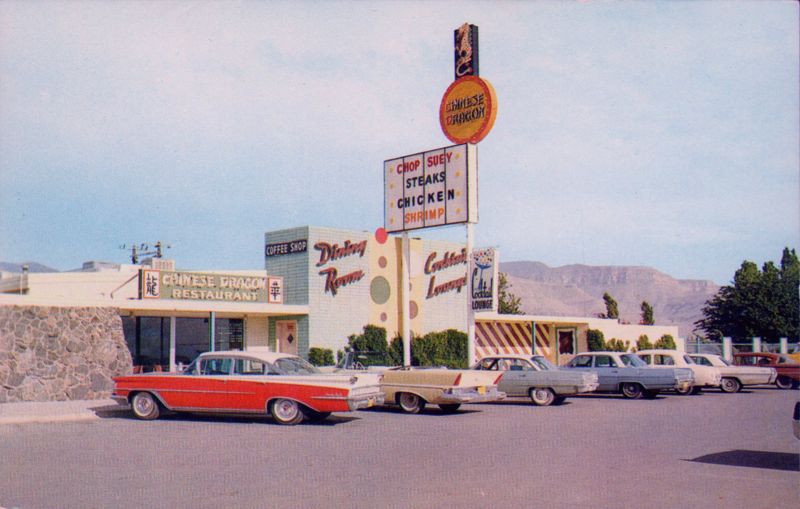
New Mexico. Chinese Dragon Restaurant, Alamgordo
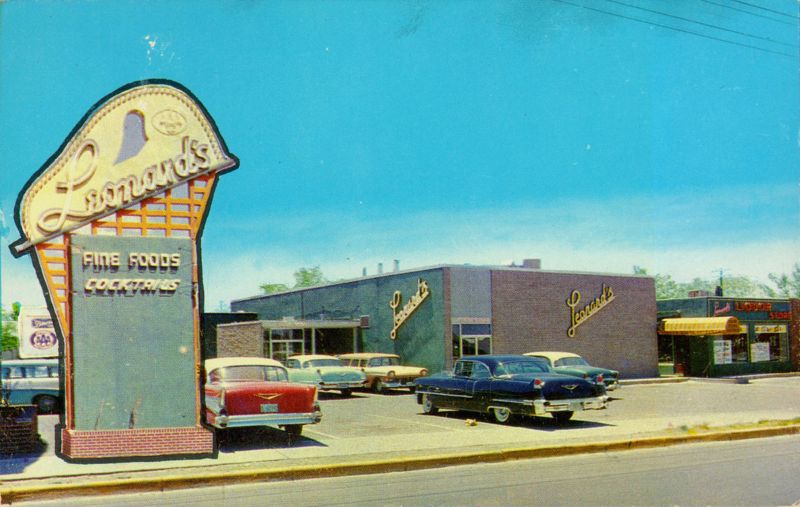
New Mexico. Leonard’s Fine Foods, Albuquerque
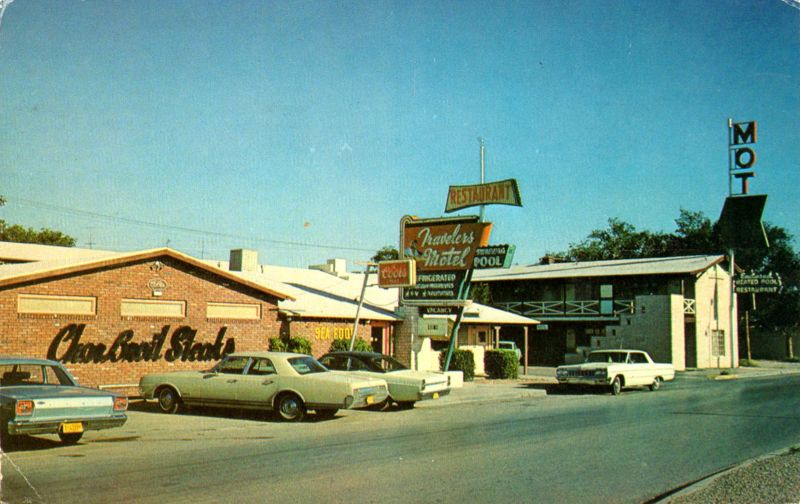
New Mexico. Travelers Motel & Cocktail Lounge, Artesia

New York. Corner House Restaurant
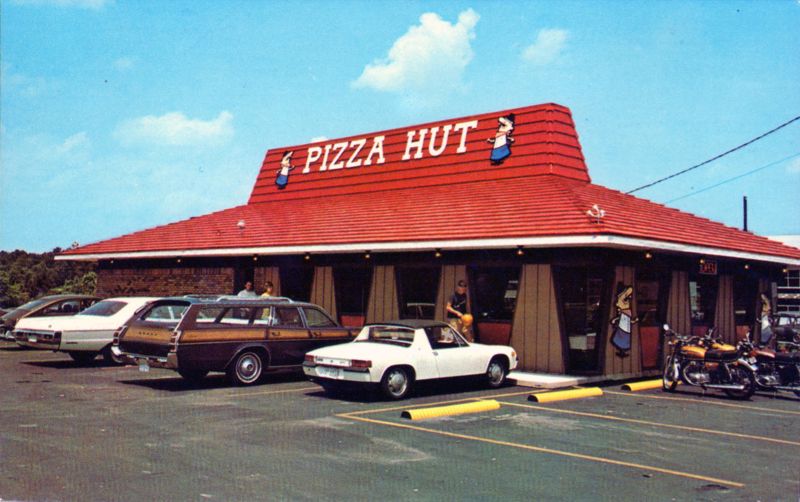
North Carolina. Pizza Hut, Fayetteville
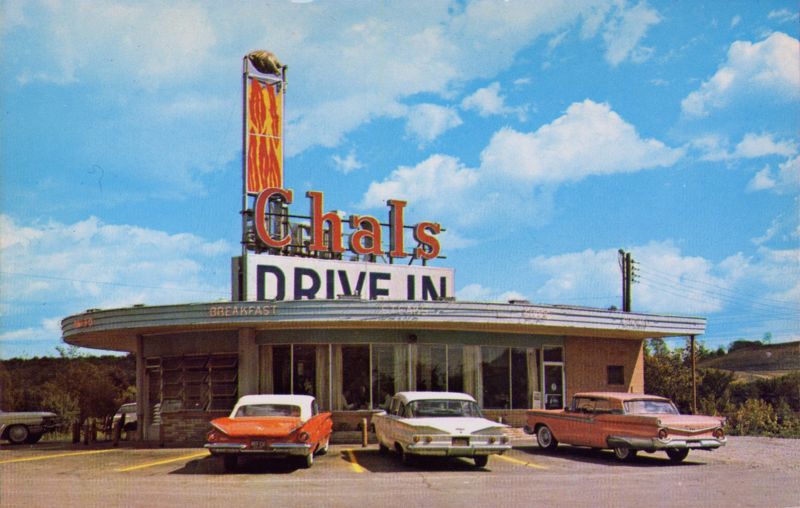
Ohio. Chal’s Drive-In Restaurant Cambridge
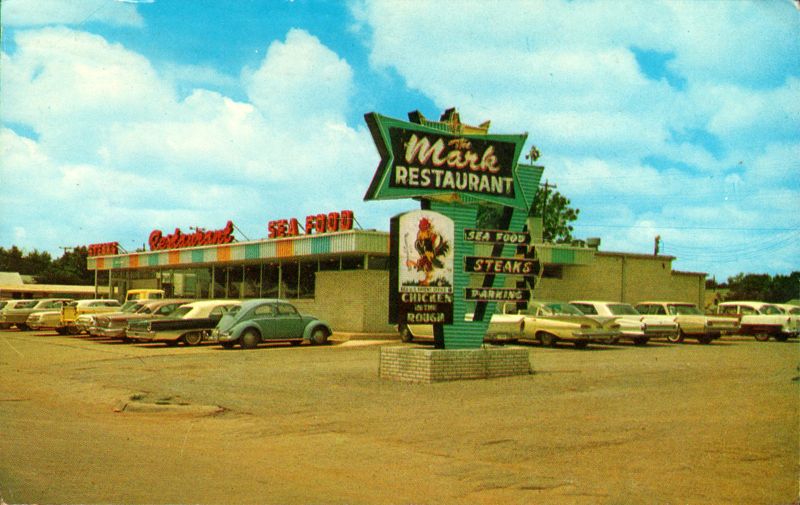
Oklahoma. The Mark Restaurant, Weatherford
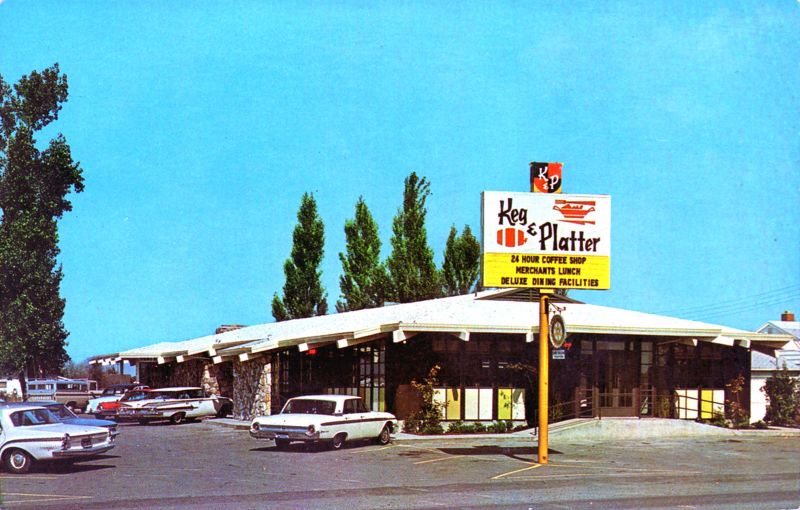
Oregon. Keg & Platter Restaurant, Salem
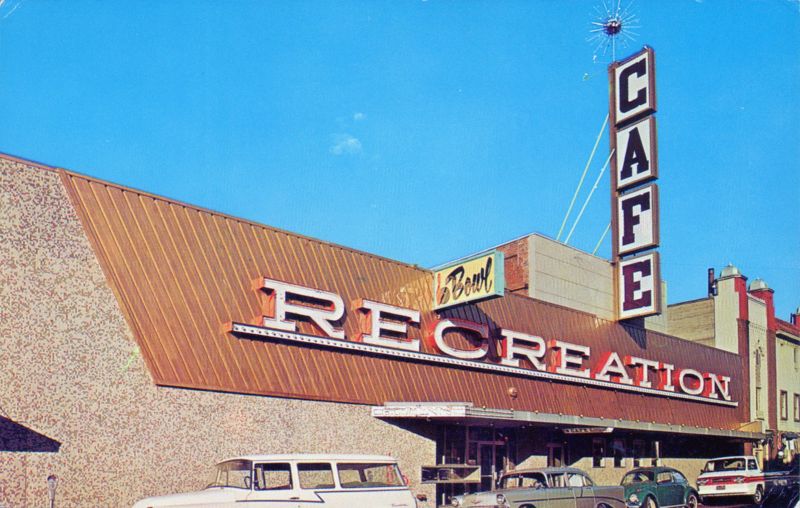
Oregon. Recreation Cafe Coffee Shop, The Dalles
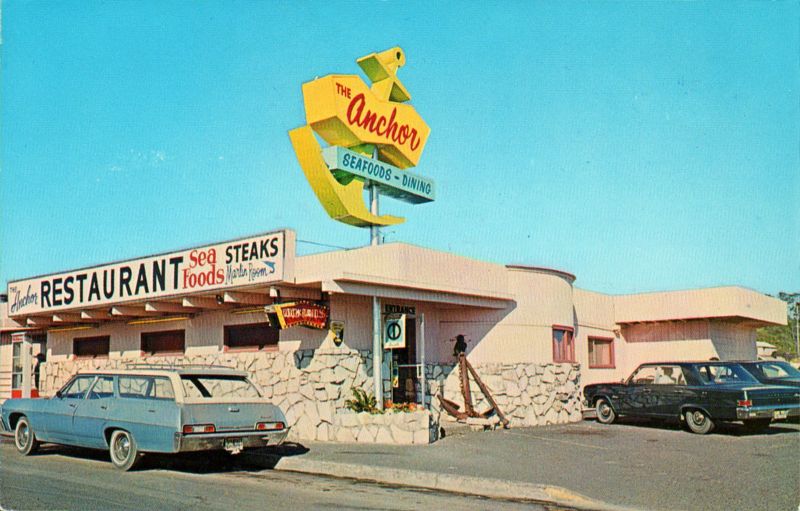
Oregon. The Anchor, Newport
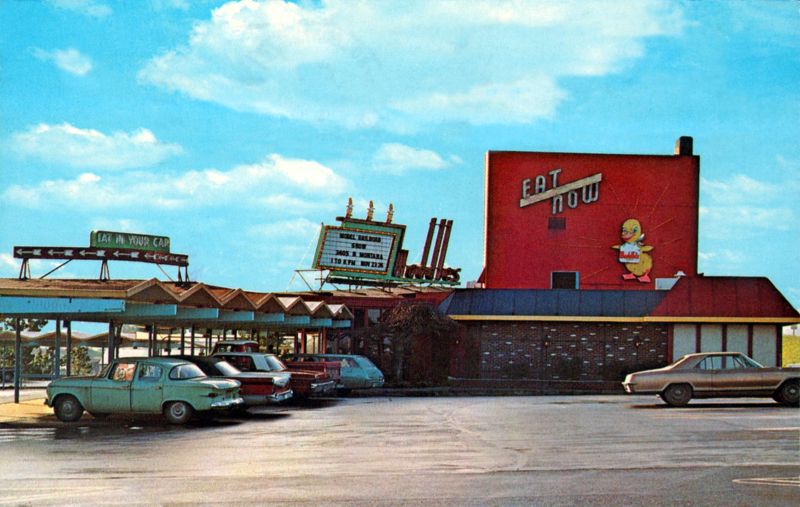
Oregon. Waddle’s Coffee Shop, Portland
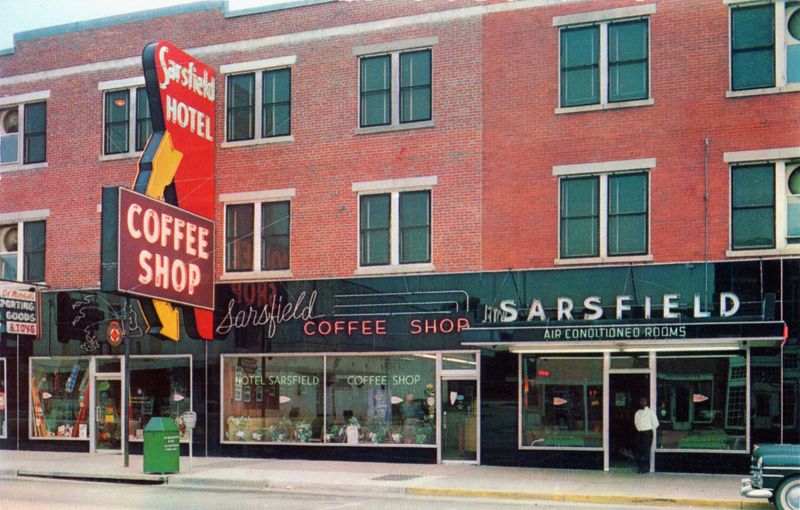
South Carolina. Hotel Sarsfield and Coffee Shop, Camden
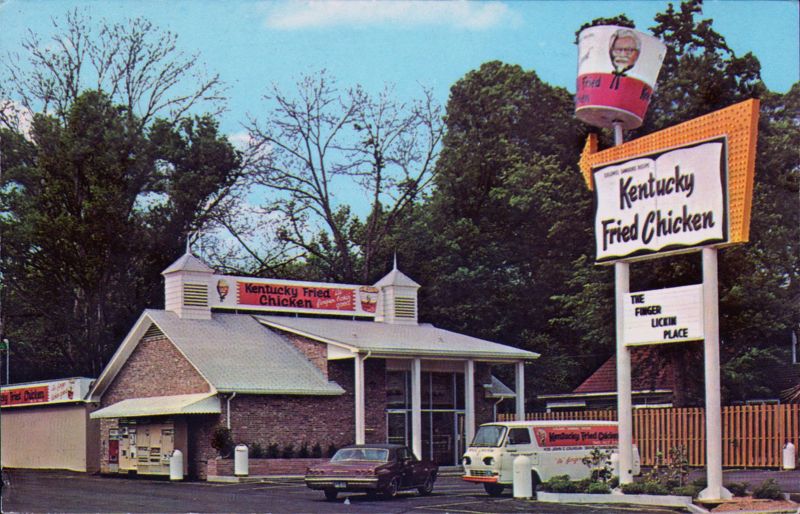
South Carolina. Kentucky Fried Chicken, Orangeburg
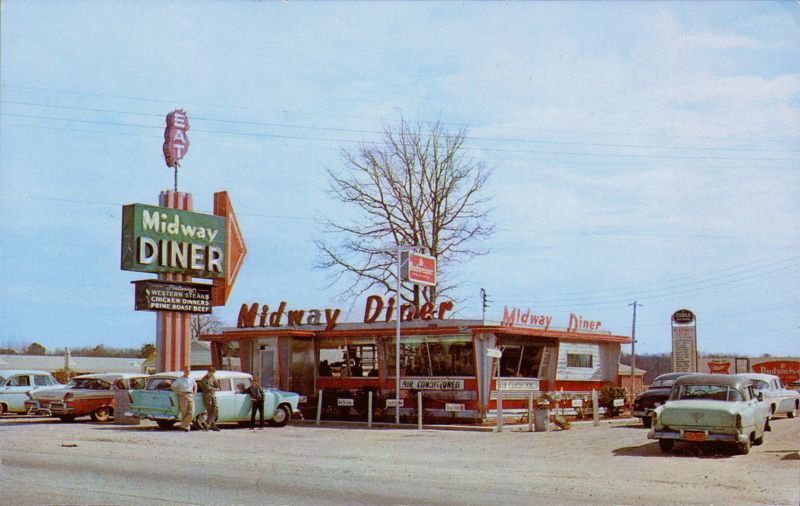
South Carolina. Midway Diner, Pee Dee
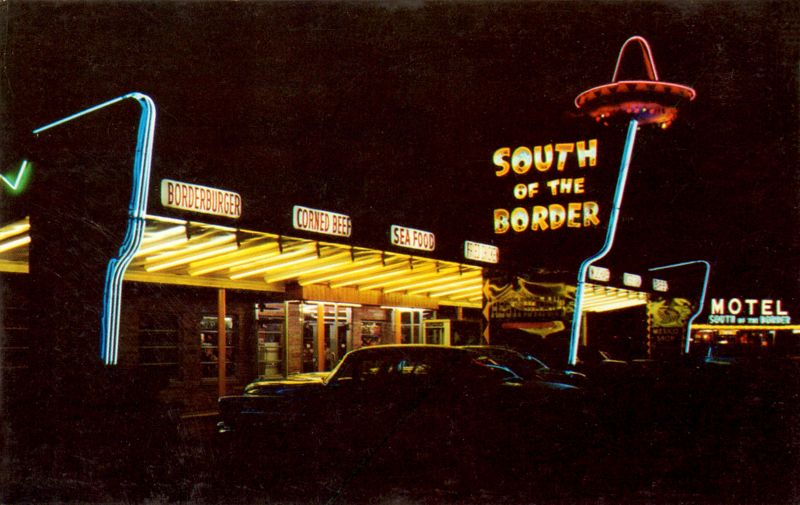
South Carolina. South of the Border Pedros Restaurant, Dillon

Texas. Jet Drive-In, Austin
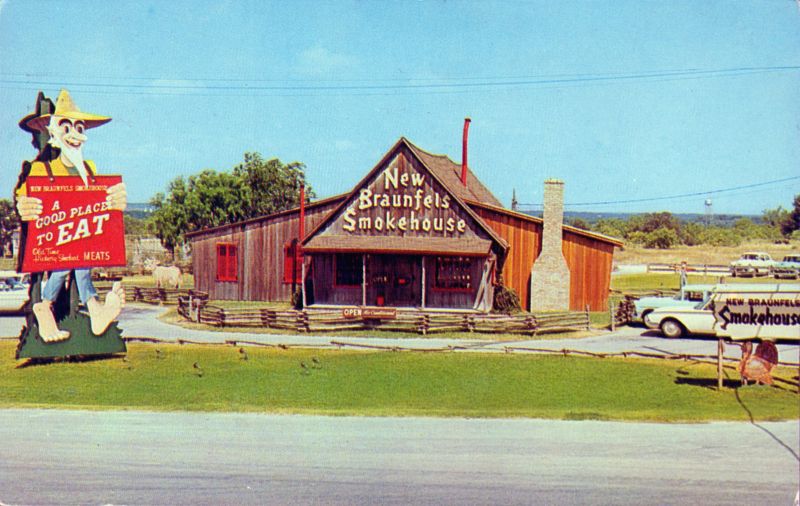
Texas. New Braunfels Smokehouse
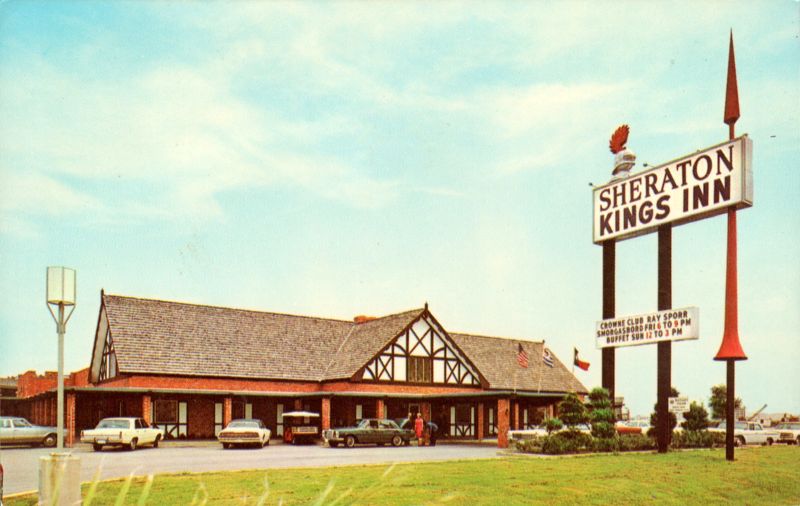
Texas. Sheraton Kings Inn, Houston
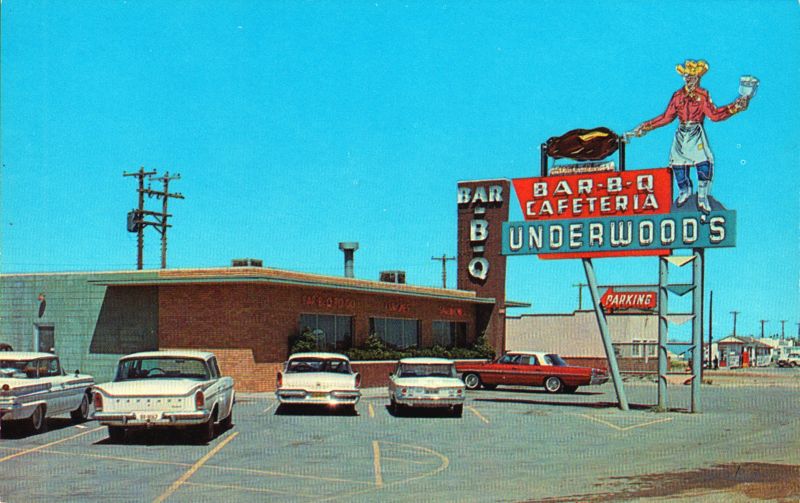
Texas. Underwoods Bar-B-Q, Amarillo
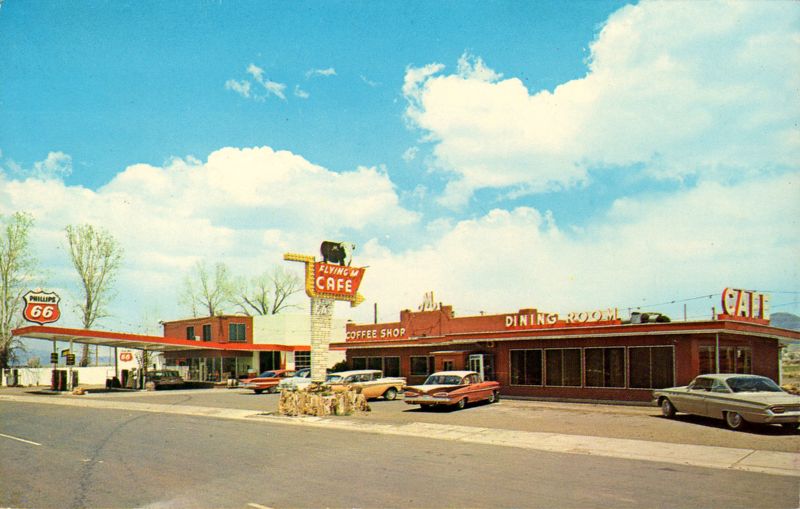
Utah. Flying M Cafe, Panguitch

Utah. Harmans Millstream Cafe & Kentucky Fried Chicken, Ogden
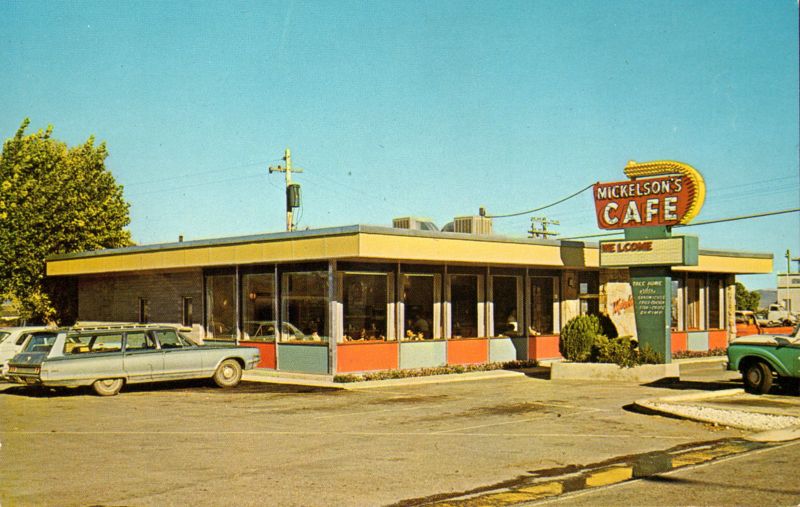
Utah. Mickelson’s Cafe, Nephi
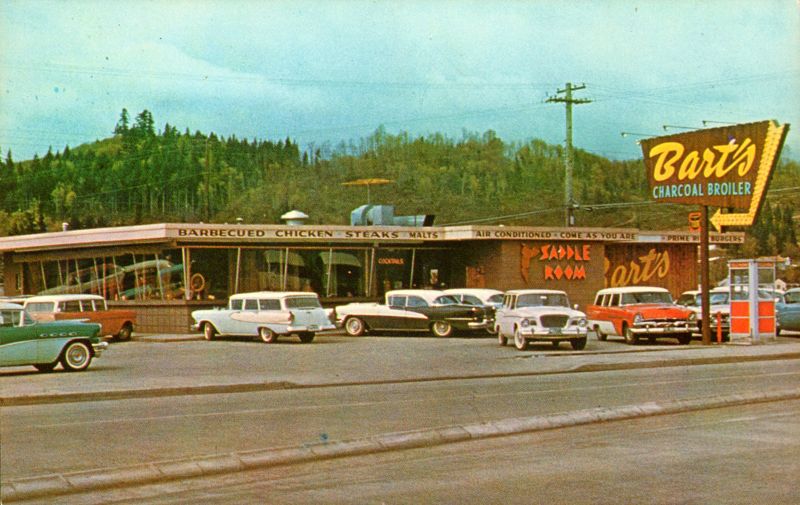
Washington. Bart’s Charcoal Broiler, Longview

Wyoming. Sands Cafe Rock, Springs
(Photo credit: Ryan Khatam at flickr.com/photos/timetravelnow / Flickr / Pinterest / Wikimedia Commons).





